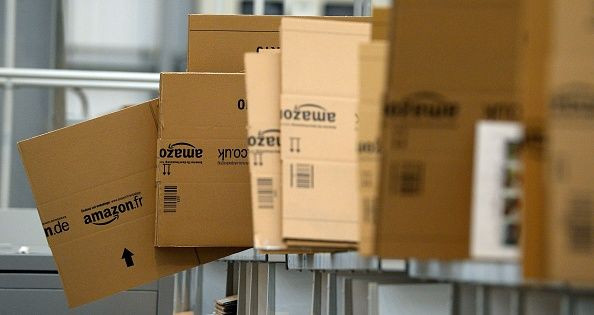Amazon Cozies Up To NetEase To Gain Ground In China

Amazon (NASDAQ:AMZN) could merge its Chinese business with NetEase's (NASDAQ:NTES)e-commerce firm Kaola soon according to a recent report in Caijing. Amazon reportedly offered a stock swap deal to NetEase at the end of 2018, but the deal hasn't been finalized.
Amazon entered China through its acquisition of the local bookseller Joyo in 2004, but it controlled less than 1% of the country's e-commerce market last year according to eMarketer. Alibaba (NYSE:BABA) and JD.com (NASDAQ:JD) hold a near-duopoly, with a combined market share of about 75%.
Amazon China fared slightly better in the imports market with a 6% share, according to research firm Analysys. Alibaba's Tmall Global leads the imports market with a 29% share, followed by NetEase's Kaola with a 22.6% share.
Since Amazon views Alibaba as a major rival in the e-commerce and cloud markets, it makes sense to partner with NetEase instead. Let's see how this deal could benefit both companies.
Why Amazon needs NetEase
Amazon's e-commerce business is running out room to grow in the US and other developed markets. That's why it's aggressively expanding into higher-growth markets like Southeast Asia and India.
Amazon often considers India to be its most promising market. In 2016 it committed $5 billion to its investments in India, which included joint ventures, infrastructure upgrades, and original digital content for the Indian market. That expansion helped it control about 30% of the Indian e-commerce market last year according to Citi Research.
However, the Indian government recently introduced new policies for e-commerce platforms which could derail Amazon's plans. These new laws ban online retailers from offering exclusive sales, bar them from selling products in which they own equity interest, restrict discounts and cashback offers, and limit foreign direct investments in local retailers.
Amazon protested the new rules, but it clearly needed to focus on other growth markets besides India. China, which it has mostly neglected over the past 15 years, seemed like a logical choice since it already established a toehold in the market.
Going head-to-head against Alibaba's Tmall or JD in the business-to-consumer market would be foolish, since many other e-commerce companies previously failed to crack that duopoly. Amazon launched Prime in China three years ago, but the platform isn't supported by a massive portfolio of digital content like its U.S. counterpart.
Therefore, focusing on the smaller market of cross-border imports makes more sense. Merging Amazon China's import business with NetEase's Kaola could help it gain ground quickly in that smaller market.
Why NetEase needs Amazon
NetEase generates most of its revenue from online video games. However, more than a quarter of its revenue comes from its two e-commerce platforms, Kaola and Yanxuan.
NetEase's e-commerce business was its fastest-growing unit in recent quarters. However, the unit's operating margin (10% in the third quarter) also remains much lower than the 60%+ operating margins of its online gaming and advertising businesses.
Yanxuan, NetEase's e-commerce platform for "unbranded" products, is controversial because it sells products that are identical to those produced by Chinese manufacturers that produce goods for multinational brands. For example, a pair of unbranded UGG boots from an "UGG manufacturer" on Yanxuan costs a fraction of the price of the authentic product on Tmall.
These products technically aren't knockoffs, but the theft of designs raises serious red flags for Yanxuan's future. Chinese regulators already cracked down on another controversial marketplace, Pinduoduo (NASDAQ:PDD), over similar allegations last year.
That's probably why NetEase doesn't want to become overly dependent on Yanxuan, which became the e-commerce unit's growth engine over the past three years. Kaola showed promising growth in the past, but NetEase's attempts to expand its presence by procuring overseas products and opening brick-and-mortar showcase stores have been costly.
Merging Kaola with Amazon's import unit could solve those problems. The investment would give Kaola fresh capital for its expansion efforts, and Amazon's connections could help it import more overseas products at lower prices.
The bottom line
Sealing this deal could benefit both Amazon and NetEase. Amazon can finally make more progress in China, and NetEase can expand Kaola to reduce the e-commerce division's dependence on Yanxuan's shaky business model.
This article originally appeared in the Motley Fool.
John Mackey, CEO of Whole Foods Market, an Amazon subsidiary, is a member of The Motley Fool's board of directors. Leo Sun owns shares of Amazon and JD.com. The Motley Fool owns shares of and recommends Amazon, JD.com, and NetEase. The Motley Fool has a disclosure policy.





















